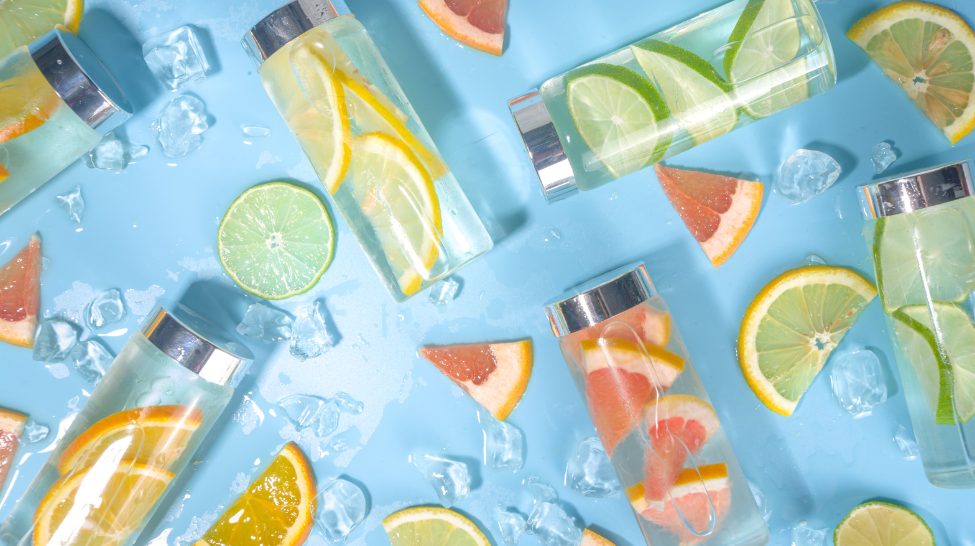
Ways to Hydrate
Water is often taken for granted, but it is a crucial component of our health and well-being. In fact, the best thing you can do for your health today might just be finishing a glass of water. Water makes up about 60% of your body weight, and every cell, tissue, and organ relies on it to function properly. From aiding digestion to regulating body temperature, hydration is essential for maintaining overall health.
The Importance of Hydration
In a survival situation, humans can last over a week without food but only about three days without water. Without adequate hydration, critical processes in the body start to break down, leading to serious health consequences. Historically, water has held significant importance in many cultures, often considered sacred and central to religious and spiritual practices. It’s no wonder that water is often referred to as the source of life.
Hydration goes beyond simply quenching thirst. Proper hydration impacts everything from brain function to digestion. Even mild dehydration can lead to discomfort and long-term health issues. Here are some key functions of water in the body:
Regulates body temperature: Through sweating, water helps release excess heat.
Flushes toxins: Water aids in eliminating waste products from the body.
Aids digestion: It creates saliva and helps break down food.
Distributes nutrients: Water dissolves nutrients and transports them throughout the body.
Prevents constipation: Water binds to waste and helps sweep it out of the intestines.
Supports brain function: Hydration enhances cognitive abilities and may reduce negative emotions.
Cushions joints: Water lubricates and protects joints, tissues, and the spinal cord.
Recognizing Dehydration
Understanding the signs of dehydration is vital for maintaining optimal health. Symptoms can range from mild to severe:
Signs of mild dehydration include:
Thirst
Dry mouth
Headaches
Dark-colored urine
Muscle cramps
Signs of severe dehydration that require medical attention include:
Confusion
Fainting
Inability to urinate
Rapid heartbeat
Hyperthermia
Seizures
Early recognition of dehydration can help prevent serious health risks. It’s important to listen to your body and respond promptly to signs of dehydration.
How Much Water Should You Drink?
While the common recommendation is to drink eight glasses of water per day, hydration needs vary based on several factors, including:
Sex, weight, and height: Larger individuals generally need more water.
Age: Older adults may have a diminished sense of thirst.
Activity level: Those who are more active require more fluids.
Climate: Hot or humid conditions can increase water needs.
Diet: Foods with high water content, like fruits and vegetables, contribute to hydration.
As a baseline, the National Academies of Sciences recommends approximately:
Women: 9-11 cups of water per day
Men: 13-15 cups of water per day
Paying attention to urine color can help gauge hydration levels; light yellow urine generally indicates adequate hydration.
Finding Safe Sources of Water
In addition to understanding hydration needs, it’s essential to ensure access to safe drinking water. Here are a few tips for finding and maintaining safe water sources:
Check Local Water Quality Reports: Most municipalities provide annual water quality reports that inform residents about potential contaminants and water safety.
Use Water Filtration Systems: Filtration systems can remove impurities and improve water taste. Here are some recommended options:
Brita Pitchers: Simple and effective for everyday use, these pitchers filter out chlorine and other contaminants.
Berkey Water Filters: Great for large families or emergency situations, Berkey systems can filter a wide range of contaminants.
Reverse Osmosis Systems: These systems remove nearly all impurities and are ideal for those looking for the highest level of filtration.
Consider Bottled Water Options: If tap water isn’t safe, look for bottled water in glass containers to minimize plastic waste and potential contaminants.
Adding Electrolytes
Staying hydrated isn’t just about water alone; electrolytes play a crucial role in hydration. Electrolytes, like sodium, potassium, and magnesium, help maintain fluid balance in the body. Products like LMNT provide a great way to replenish electrolytes, especially after exercise or in hot weather. Adding electrolyte-rich drinks can enhance hydration and support overall health.
Hydration Myths Debunked
There are many misconceptions about hydration that can lead to confusion. Here are some common myths:
You need to drink exactly 8 glasses of water a day: Hydration needs vary based on individual factors.
Caffeinated drinks dehydrate you: Moderate coffee and tea consumption can be hydrating.
Clear urine always means proper hydration: Light yellow urine indicates good hydration, while completely clear urine may suggest overhydration.
Bottled water is always better than tap water: Tap water can be just as safe and has a lower environmental impact.
You can’t drink too much water: Overhydration can occur and lead to serious health issues.
Practical Tips for Staying Hydrated
Staying hydrated doesn’t have to be complicated. Here are some practical tips to improve your hydration habits:
-Drink water first thing in the morning.
-Keep a refillable water bottle handy.
-Incorporate hydrating foods like fruits and soups into your meals.
-Set daily hydration goals and reminders.
-Experiment with flavoring your water with fruit or herbs to keep it interesting.
-Add electrolyte-rich drinks like LMNT, especially during exercise or hot days.
Hydration is a fundamental aspect of health that affects everything from digestion to cognitive function. By understanding the importance of water, recognizing dehydration signs, and ensuring access to safe drinking sources, you can enhance your well-being. Whether you’re looking to optimize your personal wellness or simply want to feel your best, staying properly hydrated is key to maintaining a healthy lifestyle. Remember, water is not just a drink; it’s a vital part of life.
Related Articles
Coaching, Health & Wellness






